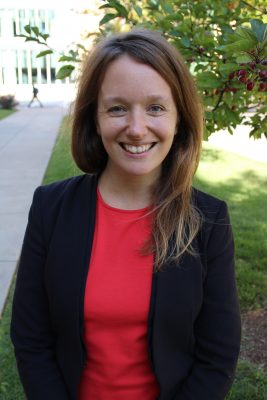Course Overview
Even if you’re not sure social justice is your thing, this course is a chance to learn skills that matter in everyday life. It will help you understand the world from different perspectives, improve your ability to think critically, and strengthen your communication skills—all of which are essential, no matter what career path you choose. You’ll also explore real-world issues like fairness, equality, and leadership, which can help you navigate and shape the world around you. Whether you’re into business, science, or the arts, understanding social justice will give you an edge in collaborating with others and making informed decisions in an increasingly interconnected world. Students will collaborate in teams to complete community-engaged projects to understand, critique, and address social injustices they care about through math, statistics, and mapping. All students are welcome! No specific mathematics or statistics background is required!
All students who successfully complete the course will receive a Certificate of Completion and have the opportunity to request a Syracuse University noncredit transcript.
Learning Objectives
- This special-topics course will introduce students to conducting cycles of research, mathematization, and dissemination using data visualization and mathematical and statistical modeling techniques to explore phenomena related to local environmental and social justice issues.
- This course will introduce students to concepts and skills in statistics—including measures of center, spread, regression models, and plots—and functions—including polynomial and periodic functions—as tools to name, critique, and support change in understanding and addressing social justice issues.
- Students will use graphical, numerical, and symbolic representations of in social justice problem contexts, you will investigate mathematical and statistical models and their utility in understanding disproportionality and other indicators of injustice across social, racial, environmental contexts.
- Students will engage in applied problem solving in collaborative group settings using graphing technologies to support your reasoning. Students will also develop procedural fluency with writing, evaluating, and interpreting mathematical and statistical models.
Course Information
Course Prefix and Number: SCN 173
Format: On Campus (at Syracuse University)
Eligibility: Students must be of rising high school sophomore, junior, or senior status – or a 2025 high school graduate.
Students should have completed a course in algebra. No other specific mathematics or statistics background is required.
Credit: Noncredit
Grading: Pass/Fail
Cost:
- Residential: $2,395
- Commuter: $1,908
Program rates are subject to change and will be approved by the board of trustees. Discounts and scholarships are also available.
Program Information
Summer College – On Campus: Experience what college is really like: take a college-level course, live in a residence hall, have meals with friends in a dining hall, and participate in activities and events on campus.
Course Dates and Details
| Program | Course Dates | Class Time (Eastern Time) | Credit/Noncredit |
|---|---|---|---|
| Summer College – On Campus | 1-Week Session II: Sunday, July 20 – Friday, July 25, 2025 | MTWThF; 9 a.m. – 4 p.m. | Noncredit |
To see if this course is ‘open,’ refer to the full course catalog.
Course Requirements
Technology Requirements
Please know that any supply purchases are not included in the overall tuition fee. Students will need to budget for additional course supplies, textbooks, supply kits, etc.
A laptop is required to take this course.
Typical Day
Tentative Schedule
Each day will start with an interactive, problem-solving activity. Students will be engaged in small group discussion and active learning. After lunch, students will work independently and small groups on projects tailored to their interests. Students will receive personalized feedback on their progress throughout the course.
In brief, this special-topics course will engage students in active learning through:
• Cycles of research, mathematization, and dissemination.
• Using data visualization and mathematical and statistical modeling; and
• Exploring local environmental and social justice issues.
There will be an End Event open to parents and other guests at the end of this course.
When class is over, and on weekends, students can look forward to various Summer College – On Campus activities to meet and connect with other students! Check out our On Campus Experience page for more information!
Faculty Bios
Nicole L. Fonger

Nicole L. Fonger is an Associate Professor of Mathematics and Mathematics Education at Syracuse University. Nicole has earned Master’s degrees in Mathematics, and Mathematics Education, and a Ph.D. in Mathematics Education. Dr. Fonger is a community-engaged scholar, mathematics education researcher, visual artist, mathematics teacher educator, mathematics professor, and mother of three school aged kids. Dr. Fonger has 18 years of teaching experience. Her driving passion as a researcher and educator is to inspire young people to experience math as meaningful to their lives.
Dr. Fonger is the author of numerous articles, and the book “Making Algebra Meaningful: A Visual Approach to Math Literacy for All.” This text showcases the power of using hand-drawn visualizations or sketchnotes as tools to support educators in their journeys to support all students to be successful in learning mathematics.
Dr. Fonger is also the founder of the Antiracist Algebra Coalition, and the Co-Founder of the Data Warriors, an after-school club focused on math, mapping, and social justice. In addition to her academic and community-engaged work, Nicole enjoys baking sourdough bread, running in the Syracuse University campus and surrounding neighborhoods, and gardening with her kids.
